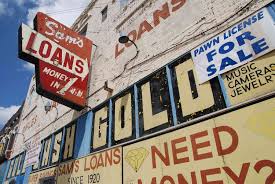Pawn shops have long been fascinating venues where the allure of hidden treasures meets the practical need for quick cash. These establishments play a crucial role in the economy by providing liquidity in a unique, immediate fashion that’s quite different from traditional financial institutions. But have you ever wondered how pawn shops determine the prices for items like gold, silver, and luxury watches? It’s a blend of art and science, market dynamics, and expert evaluation.
Understanding the Basics
As per Premier Estate Buyer, who buys Rolex in Boca Raton, at its core, a pawn shop offers secured loans to people, with an item of personal property used as collateral. The pawnbroker assesses the value of the item and provides a loan based on a percentage of the item’s estimated resale value. Should the borrower choose not to repay the pawn loan and interest by the agreed-upon deadline, the pawned item can be sold by the pawnbroker.
The Pricing Formula
When it comes to precious metals and watches, pawn shops follow a relatively straightforward formula, but with a lot of room for expertise and discretion:
- Market Value:
The current market price of gold, silver, and other precious metals is the starting point. These prices fluctuate daily based on the commodities market.
- Purity and Weight
For gold and silver, the purity (karats in gold, and sterling or fine in silver) and the weight of the item are crucial determinants. The purer and heavier an item, the more valuable it is.
- Condition and Brand:
Especially with watches, the brand, model, condition, and demand significantly influence the price. A rare vintage Rolex in good condition can fetch much higher prices than generic brands.
- Resale Potential
Pawnbrokers also consider how easily they can sell the item. Items with high demand and liquidity in the market will generally fetch a better loan offer.
The Expert Eye
Pawnbrokers often have years of experience and tools at their disposal to assess an item’s value accurately. For gold and silver, this might involve acid tests to confirm purity or electronic testers that offer a non-destructive way to measure both purity and weight. With watches, pawnbrokers may research recent sales of similar models and consider the current market demand.
Market Dynamics
The global and local economic conditions can greatly affect the pawn industry. For example, in times of economic downturn, the price of gold often rises as investors flock to safe assets. This, in turn, can increase both the amount lenders are willing to offer for gold items and the number of people looking to sell or pawn their gold for cash.
The Human Factor
Negotiation plays a role in the final price offered for an item. While pawnbrokers have a clear idea of the maximum they can offer, there’s often a bit of wiggle room. The better condition your item is in, and the more demand there is for it, the better your position in negotiating a higher price.
Tips for Consumers
If you’re considering pawning an item, here are a few tips:
- Know the Market Value:
Before you go, research the current price of gold, silver, or any brand-specific information about your watch.
- Clean Your Item
Presenting your item in the best possible condition can positively influence its appraised value.
- Documentation
Bringing any original packaging, certificates of authenticity or receipts can help get a better offer, especially for high-end watches.
- Shop Around
Don’t be afraid to visit multiple pawn shops to compare offers. This is especially true for unique items where the perceived value can vary significantly between pawnbrokers.
What Is The Future of Pawning Watches?
The pawn industry is constantly evolving and adapting to market trends and consumer demands. With the rise of online platforms, some pawn shops are now offering online appraisal services for luxury watches. This allows customers to receive an estimate without having to physically bring in their item.
In addition, there has been a growing demand for sustainable and ethical consumption, leading some pawn shops to specialize in buying and selling pre-owned luxury watches, catering to consumers who may prefer a more environmentally-friendly option.
Overall, the future of pawning watches looks promising, as it continues to offer a convenient and accessible way for individuals to access quick cash while also providing an alternative market for luxury watch enthusiasts. So, if you’re ever in need of some extra cash or looking to add a new piece to your collection, don’t overlook the option of pawning your watch.
Just be sure to do your research and find a reputable pawn shop that offers fair evaluations and prices. So, if you’re ever in need of some extra cash or looking to add a new piece to your collection, don’t overlook the option of pawning your watch. Just be sure to do your research and find a reputable pawn shop that offers fair evaluations and prices.
Conclusion
The economics behind pawn shop pricing is a delicate balance between market trends, intrinsic value, and individual assessment skills. Whether you’re in the market to pawn an item or satisfy your curiosity about how these age-old institutions operate, understanding the factors that influence pricing can give you an edge. Pawn shops continue to serve as a fascinating microcosm of the broader economy, reflecting the timeless value of gold, silver, and the timeless appeal of luxury watches.


![7 Best POS Software in the UK [2026 Edition]](https://todaynews.co.uk/wp-content/uploads/2026/02/7-Best-POS-Software-in-the-UK-2026-Edition-360x180.png)








































































